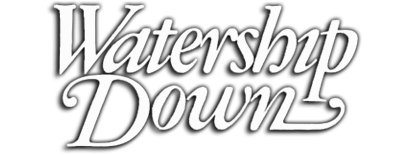Lapine is a language created by author Richard Adams for his 1972 novel Watership Down, where it is spoken by characters. The fragments of language presented by Adams consist of a few dozen distinct words, and are chiefly used for the naming of rabbits, their mythological characters, and objects in their world. The name "Lapi" comes from the French word for rabbit, lapin, and can also be used to describe rabbit society.
Adams commented that the motivation for the sound of Lapine was that it should sound "wuff-fluffy", as in the name "Thethuthinnang". It is akin in some phonological respects to Arabic —for example, the Lapine name "Kehaar" is quoted as being reminiscent of the Arabic "Behaar"—and this was probably influenced by his time in North Africa in World War II Within the book, only the rabbits speak Lapine; they communicate with other animals in a language known as "Hedgerow."
In general, words are pluralized by dropping the last vowel and adding -il. For example: homba (fox), hombil (foxes).
Terms
Adjectives
- Embleer – An adjective translated to stinking, specifically referring to the smell of a fox.
- Narn – An adjective denoting nice or pleasant, often in terms of food.
- Roo – Used as a suffix to denote a dimunitive, e.g. Hrairoo.
- Tharn – An adjective meaning to be under intense terror; frightened to the point of nervous stupor. The noun form of this word bears a similar meaning.
- Zorn – To be destroyed or to be killed. The noun form is identical to this word.
Animals
- Elil – a term that refers to the natural enemies of rabbits (foxes, stoats, badgers, etc) and also to humans, who are regarded as one of the Thousand Enemies. Its use is similar to use of the word "evil" in the English language. The rabbits also know their enemies as "u embleer hrair", Lapine for "the stinking thousand".
- Hlessi – A homeless rabbit without a hole to dwell in.
- Homba – A fox.
- Lendri – A badger.
- Marli – A doe (female rabbit); also means "mother".
- Nildro - Blackbird
- Pfeffa – A cat.
- Yona – A hedgehog.
Articles
- U – The. Used as in "U hrair", meaning "The thousand", or more literally "The many".
Nouns
- Enth - Dew
- Flay – Food; particularly good food is called flayrah, using the suffix -rah, which literally means "food of princes".
- Frith – The sun, personified as a god by rabbits. Frithrah! is used as an exclamation and translates to "the lord Sun".
- Hain - Song
- Hlao – Any dimple or depression in the grass, such as that formed by a daisy plant or thistle, which can hold moisture.
- Hrair – Any number greater than four. It is translated to thousand and, less commonly, five. Hrair, combined with elil and the suffix -rah, forms the name Elil-Hrair-Rah, literally, "the prince with a thousand enemies", which is shortened to El-ahrairah, the rabbits' mythological champion and messiah.
- Hraka – Droppings, feces
- Hrududu – An onomatopoeic term that refers to any motor vehicle. (plural: hrududil)
- Inlé – The moon; also the idea of darkness, fear or death (as in the "Black Rabbit of Inlé"). Fu Inlé is used to refer to "after moonrise".
- Laburnum – The Poison Tree
- Ni-Frith – Noon
- Rah – A prince or leader; usually used as a suffix, e.g. Threarah means "Lord Threar".
- Silf – Outside, outdoors
- Tharn – Petrifactory fear, i.e. "deer in the headlights".
- Thlay – Fur
- Threar – A rowan tree, or mountain ash. ("Thrennion" is the word for berries of this tree.)
- Zorn – Destruction or murder; can also denote catastrophe.
Prepositions
- Fu – After. The period of time subsequent to an event.
Verbs
- Hyz - Shine
- Silflay – A term used for both grass used for grazing and the act of grazing itself.
- S'a'i'o'n – The action of meeting, used in the phrase "M'saion", or we meet them.
- Vair – To excrete, to pass poop.
- Hlaoroo- to be weak or small
